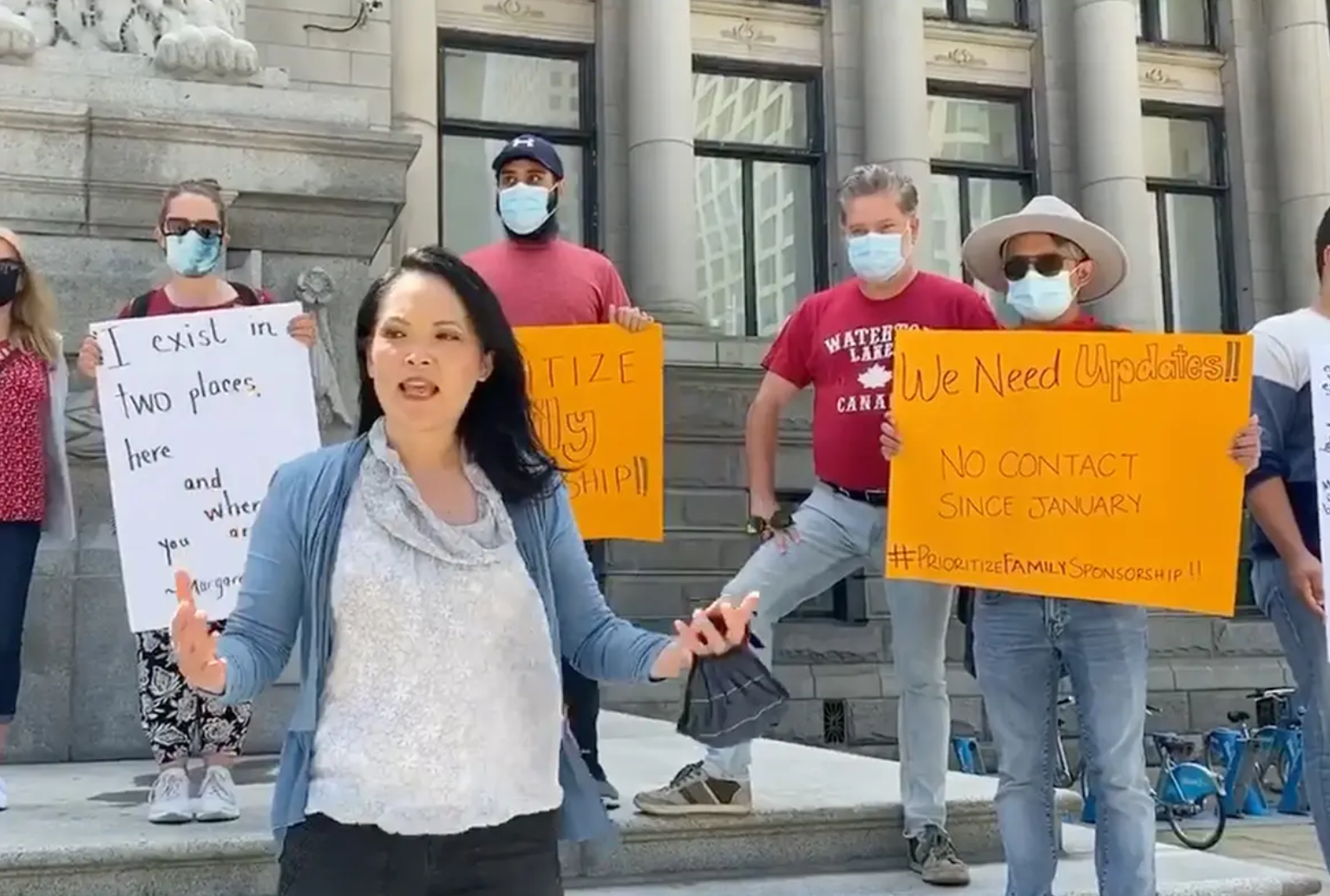Immigration
International couples face immigration processing delays

Canadians say special IRCC measures to reunite families during the coronavirus outbreak are not enough. (Photo: CIC News)
Canadians who have been separated from their foreign national loved-ones for an extended period of time are mounting pressure on the federal government to take action.
The coronavirus outbreak is highlighting issues in the spousal and common-law sponsorship program that existed before the pandemic. Temporary Resident Visas (TRV) are often denied for spousal sponsorship applicants from visa-required countries because they have to demonstrate that they would leave Canada at the end of their authorized stay if their permanent residence application is not finalized.
Though foreign national spouses of Canadians are exempt from travel restrictions the coronavirus is making it difficult for couples to reunite. Crucial service outlets, like biometric centres, are closed around the world or operating at reduced capacity making processing times slow. Engaged couples, who are not eligible for common-law status, are especially feeling the strain. The foreign fiance is not exempt from travel restrictions and Immigration, Refugees and Citizenship Canada (IRCC) does not recognize virtual marriages for the purposes of immigration.
Although Canada is still accepting applications for spousal and common-law sponsorship, sources say that applicants have gotten no communications on these files since February.
Protests sparked over the weekend in cities like Edmonton, Ottawa, Montreal, Toronto, and Vancouver. A petition, lead by Member of Parliament Jenny Kwan, has about 5,700 signatures calling for the creation of a Special Temporary Resident Visa to allow spouses and their children to reunite with their Canadian partners.
Kwan, who is the New Democratic Party critic of Canada’s immigration department, has been pushing for a visa like this since 2017. This past July she sent a letter to the immigration minister, Marco Mendicino, once again asking for a TRV to be made available to spouses who had been approved in principle.
The immigration minister responded to Kwan’s letter this week. His letter acknowledged that COVID-19 has caused service disruptions within the government, and that they are still operating on reduced capacity. He listed the measures the department has taken to accommodate foreign spouses such as extending deadlines for submitting documents, and giving permanent resident applicants more time to apply to extend their stay in Canada, among others.
He also brought up the concept of dual intent, where “an applicant seeking permanent residence does not prevent them from seeking temporary residence.” Meaning that people can be in Canada on a temporary residence permit while waiting on their application for permanent residence to be approved. However, to meet temporary status requirements applicants still have to prove that they will leave when their status runs out.
Foreign spouses with TRV applications in progress can also contact IRCC to identify themselves as being exempt from travel restrictions.
Kwan posted the minister’s letter on Facebook saying, “The current process is clearly insufficient and is preventing spouses from reuniting in a timely manner. This is made evident from the protests that took place in Vancouver and across the country this past weekend, the strong support for the petition that I have sponsored and the countless emails I’ve been receiving from constituents and people from across the country.”





















